Lithium Ion vs. Lithium Polymer Batteries Which Is Better? RAVPower
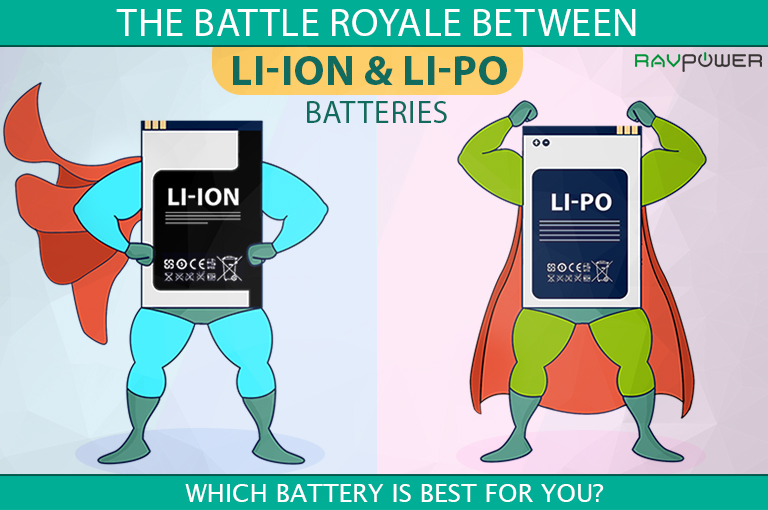
Considering all that, we've decided to come up with a comprehensive comparison table featuring lithium ion vs lithium polymer batteries. Take your pick! Feature. Li-ion battery. Li-Po battery. Energy density (more extended battery run time concerning the battery size) 250-693 W·h/L (higher) 250-670 W·h/L (lower)
what is the difference between lithium ion and lithium polymer in Hindi YouTube

Lithium polymer batteries, often abbreviated as LiPo, are a type of rechargeable battery that relies on lithium-ion technology and uses a polymer electrolyte instead of a liquid electrolyte. This polymer can come in a dry solid, a porous gel, or a liquid contained within a solid matrix. The core components include a positive electrode ( cathode.
Lithium ion vs Lithium polymer Battery explained in detail Best for Smartphones, mobiles Do

This FAQ begins with a high-level comparison of Li-ion and LiPo batteries, followed by a detailed look at the six basic lithium battery chemistries most suitable for use in LiPo batteries. It closes with a look into the future and the possible development of aluminum-air polymer batteries and solid-state batteries.
Li ion VS Li Polymer Batteries. Which is Better?? Explained in Details YouTube

Safety Considerations for Both Batteries. When selecting a battery for your device, safety should always be a top concern. Both lithium polymer and lithium ion batteries have unique safety considerations that users must be aware of.. Lithium polymer batteries are lightweight and flexible but can swell or catch fire if mishandled. Avoid damaging the battery to prevent thermal runaway reactions.
Lithium Ion Vs Lithium Polymer BatteriesWhich one is better?

However, albeit having a marginally lower energy density than their Li-ion counterparts, lithium-polymer batteries have one special benefit: flexibility. Li-Po batteries offer a more flexible and adaptable shape by substituting a gel-like or solid polymer electrolyte for the liquid electrolyte in Li-ion cells.
Navigating the Power Choices Lithium Polymer vs Lithium Ion Battery Baddiehub

Lithium-ion batteries are generally more effective and prevalent than lithium-polymer batteries. They have better density and high power capacity than lithium-polymer batteries, and they also last longer on average. They are also more versatile in terms of their size and shape, making them suitable for smaller devices.
Which Battery is Better Lithium ion or Lithium polymer?
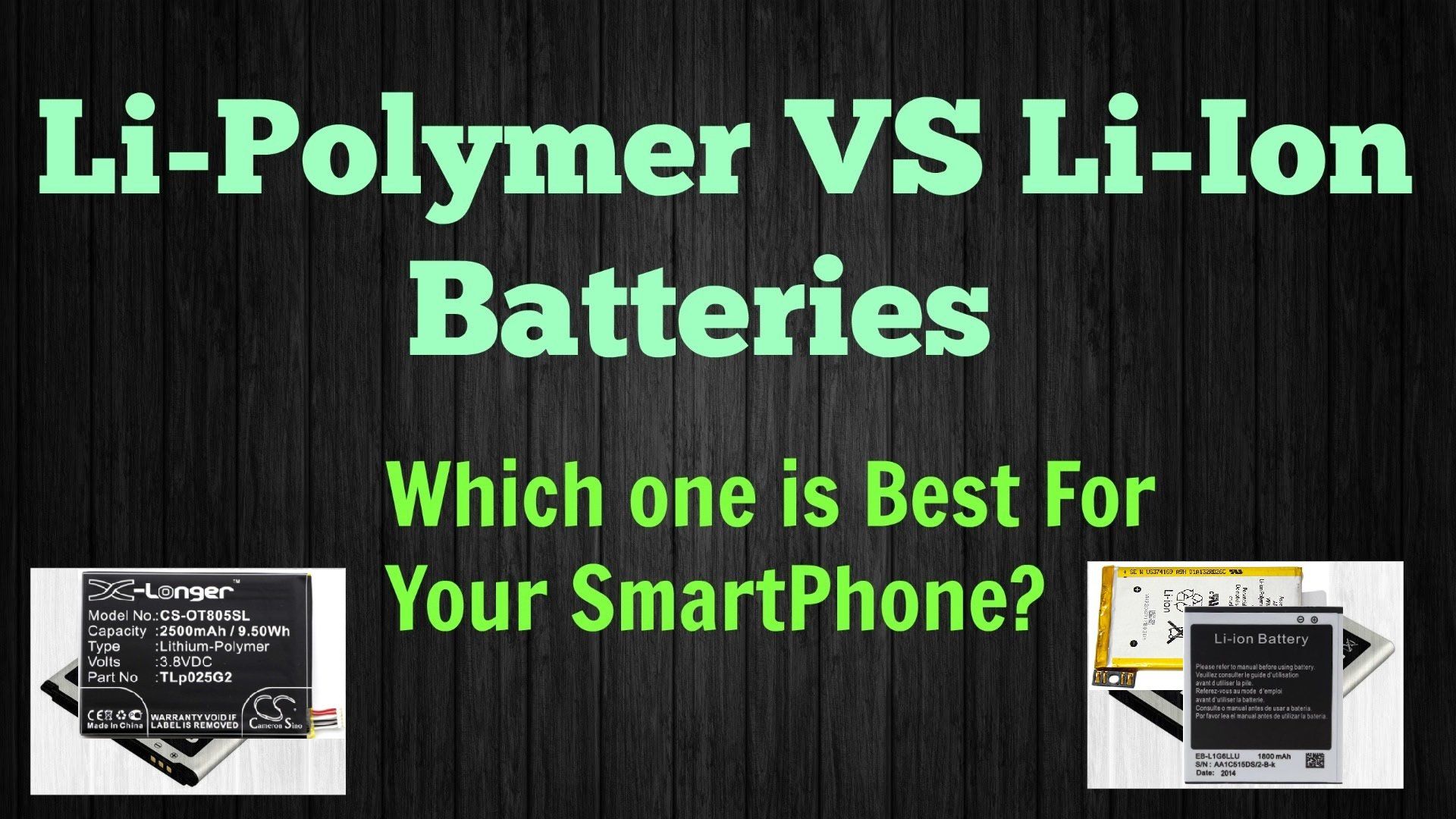
Lithium-Ion (Li-ion) Batteries: Energy Density: High energy density, suitable for power-hungry devices. Cost: Generally less expensive to manufacture than lithium-polymer. Shape: Typically cylindrical, but can be made in custom shapes at a higher cost. Weight: Usually heavier than lithium-polymer batteries of similar capacity.
Lithium Polymer Battery vs Lithium Ion Battery Redway Power™

This is because Li-Poly batteries tend to be a bit more robust than Li-Ion. Lithium-polymer technology again uses a positive and negative electrode but with a dry solid, porous chemical, or gel.
Compare lipo batteries vs liion where the differences The Best lithium ion battery suppliers
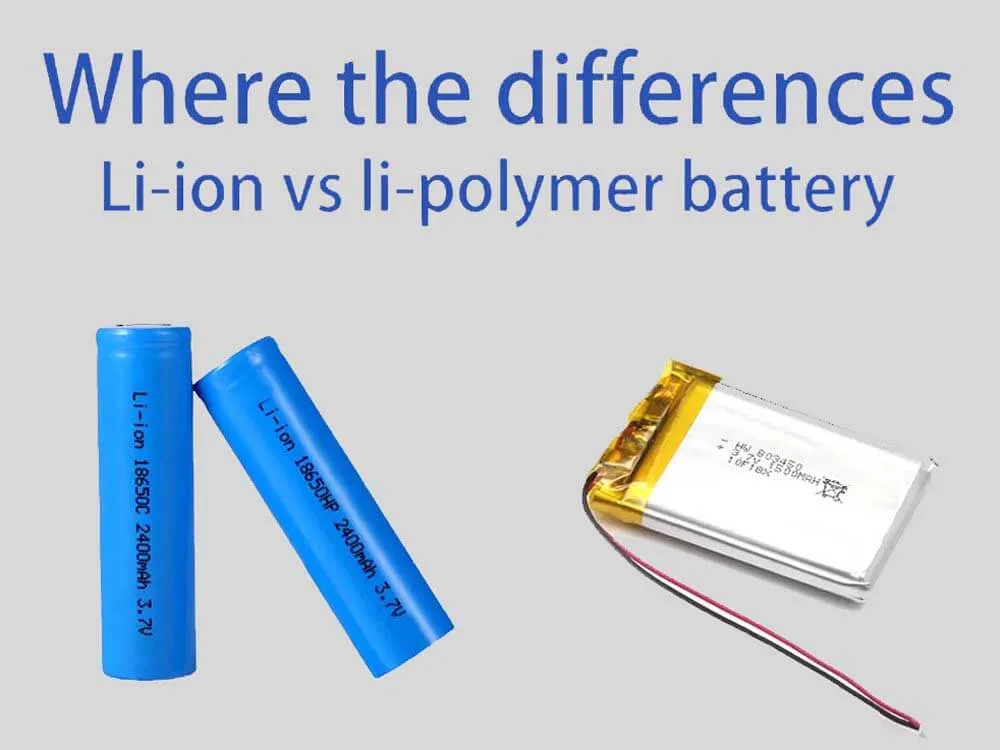
This is because Li-Poly tends to be a bit more robust than Li-Ion. Lithium-polymer technology again uses a positive and negative electrode but with a dry solid, porous chemical, or gel-like.
Lithium Metal Battery vs Lithiumion Battery Which Is Better Polinovel
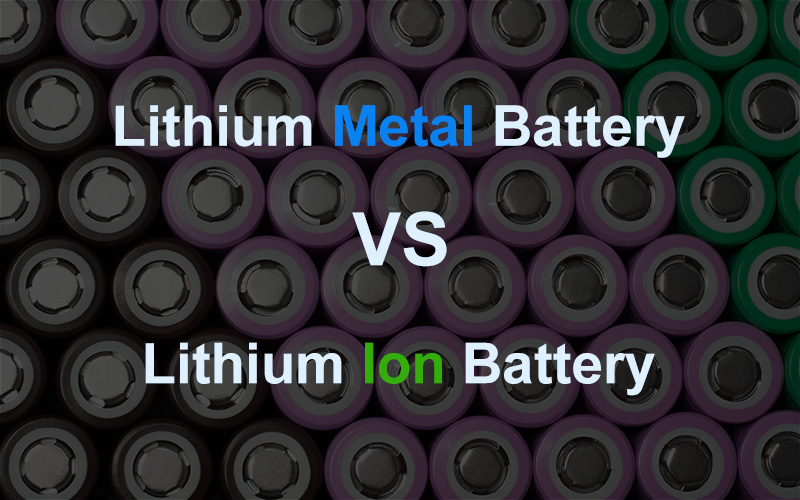
A device with Lithium batteries (especially Li-ion & Li-Polymer/LiPo) should not be left connected to chargers for >1 month unattended. Some cheaper chargers are less safe eg. ebikes, escooter, boards & toys. Some devices/chargers stipulate a maximum time for having the charger connected (ofcourse the charger is powered while connected).
Difference Between Lithium Ion and Lithium Polymer Compare the Difference Between Similar Terms

Safety considerations when comparing lithium-ion to lithium-polymer batteries encompass aspects such as lithium-ion batteries having higher energy densities, longer lifespans, and a risk of overheating, while lithium-polymer batteries are generally more stable but can also be punctured or damaged, leading to potential leakage of the electrolyte.
The difference between lithium ion and lithium polymer batteries Battery Power Tips
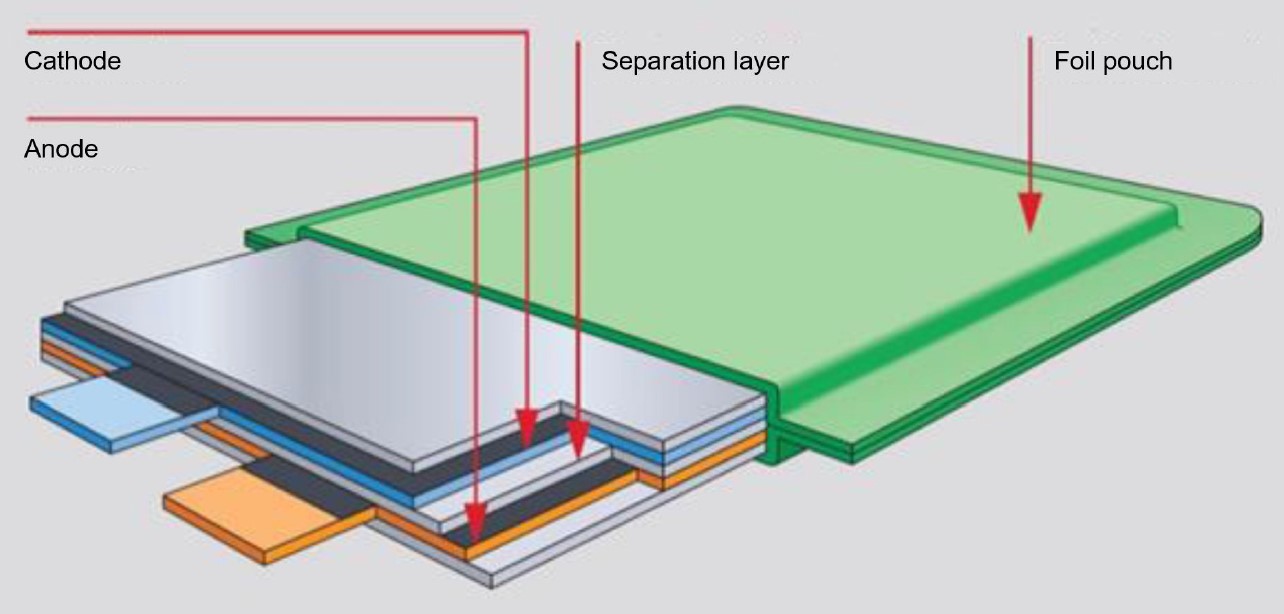
1. Battery composition. Lithium-ion batteries typically use a liquid electrolyte, whereas lithium polymer batteries utilize a gel-like or solid-state electrolyte. LiPo batteries have a polymer electrolyte that enables flexibility in the battery's shape and design, unlike the rigid structure of Li-ion batteries. 2.
Liion Vs LiPolymer Battery!! Which One is The Best Battery?? [Hindi] YouTube

A lithium-ion battery is a rechargeable battery format that first grew in popularity thanks to their adoption by major electronics companies in the early 1990s. They are essentially a group of very rigid electricity generating compartments, which consists of three pieces: a positive electrode; a negative electrode; and an electrolyte, or liquid.
Lithium Ion Vs Lithium Polymer Battery Latest Detailed difference
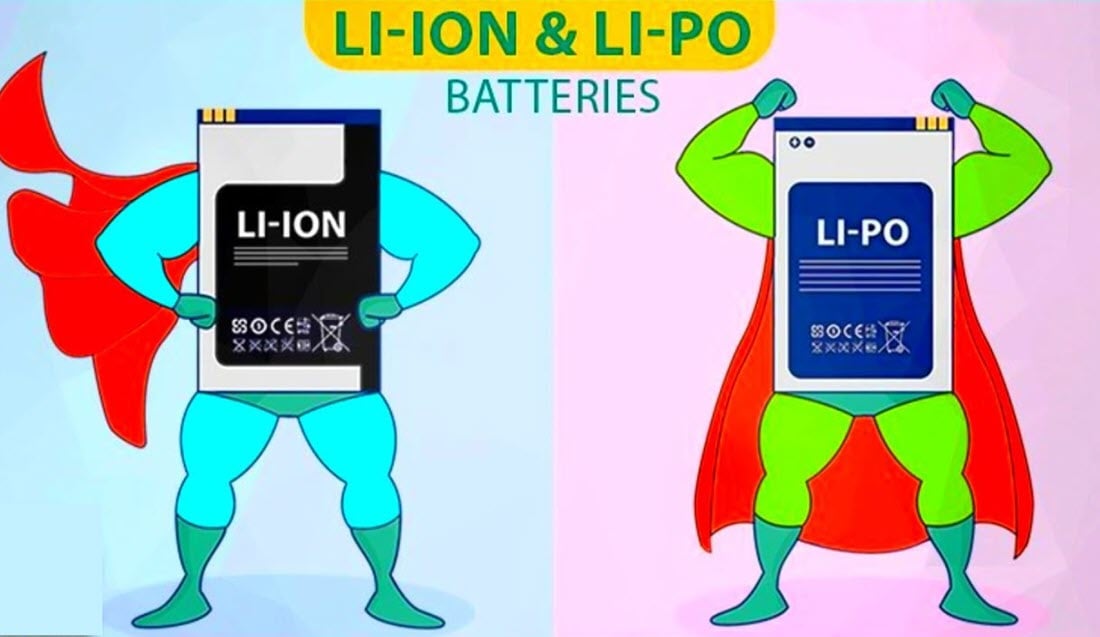
The nominal voltage of lithium-ion (Li-ion) batteries typically ranges from 3.6 to 3.7 volts per cell, while lithium polymer (LiPo) batteries have a slightly higher nominal voltage, typically around 3.7 to 3.8 volts per cell. However, both types of batteries can have different voltage ratings depending on their specific chemistry and configuration.
Lithium Ion Battery Vs Lithium Polymer Battery Waaree ESS
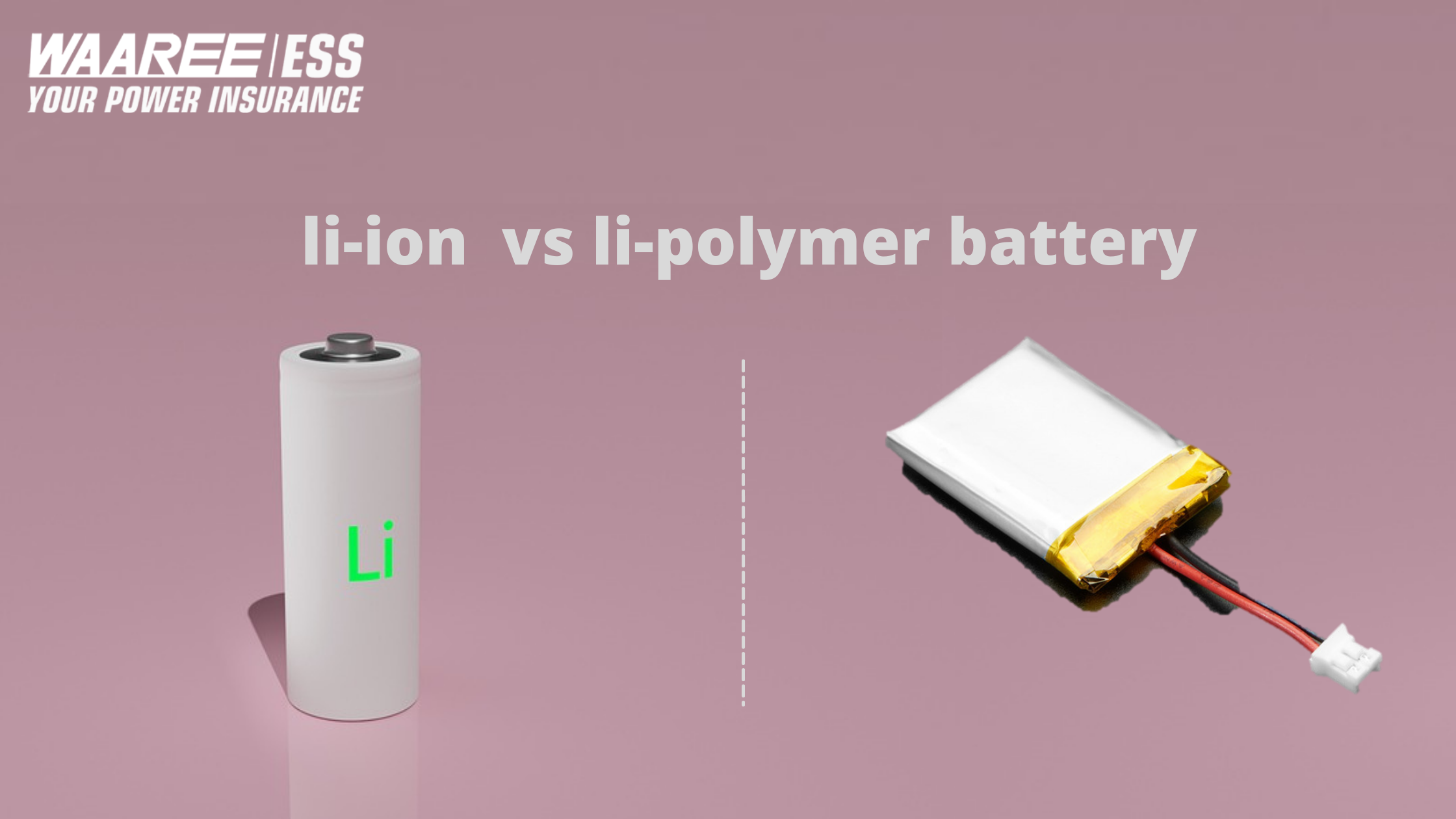
4. Weight: While lighter than traditional lead-acid batteries, Li-ion batteries are generally heavier than lithium-polymer batteries. 5. Cycle Life: Li-ion batteries offer a good cycle life.
Advantages of Lithium Ion vs. Lithium Polymer Batteries YouTube

It's one of the strategies to determine the efficiency of the battery. The charge conversion rate is higher for lithium-ion batteries than lithium polymer batteries. It may range between 85-95 % for the lithium-ion battery, and lithium polymer battery may couple the range between 75-85 %.
.